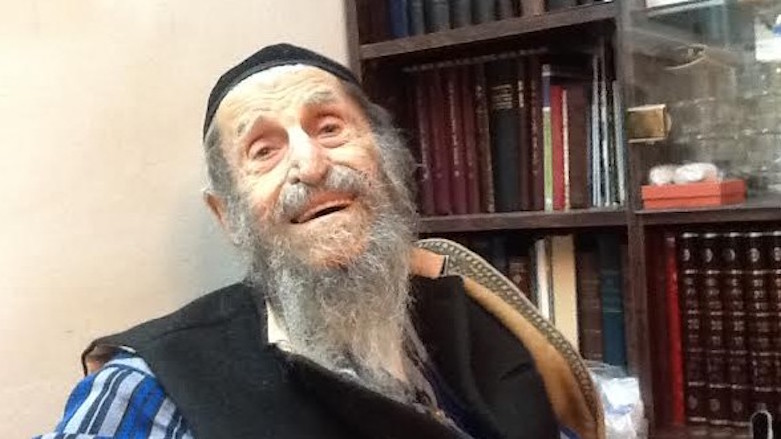Kurdish Rabbi in Israel dies at 117
A Kurdish rabbi and co-founder of the Kurdish Jews Association in Israel passed away on Monday at age 117.

ERBIL, Kurdistan Region (Kurdistan24) – A Kurdish rabbi and co-founder of the Kurdish Jews Association in Israel passed away on Monday at age 117.
Rabbi Zecharia Barashi, who was reportedly the oldest person in Israel, left behind 29 grandchildren, 72 great-grandchildren, and 24 great-great-grandchildren, according to Israel National News.
Originally from Barashi in the Kurdistan Region, Rabbi Barashi was born in 1900 and migrated to Israel in 1936 with his family.
Married at age 18, Barashi lost his wife and eight children during his lifetime.
He worked in the clothing industry in Kurdistan and as a construction worker in Israel, but later became one of the publishers of the Kurdish Jews journal.
Barashi started working in the Education Department of the Jerusalem Municipality in 1950, and in 2012 he was awarded a “certificate of honor for a senior citizen.”
The award was offered by Leah Ness, Deputy Minister for Senior Citizens. He was also recognized as the unofficial leader of Kurdish Jews in Israel.
Kurds migrated to Israel in the 16th century, with the first immigrants from Kurdistan settling in Safed.
The second wave of Kurdish Jews’ forced migration from the Kurdistan Region was in the 1950s.
Some 200,000 Jewish Kurds currently live in Israel, half of whom are in Jerusalem.
There are also over 30 agricultural villages throughout the country that were founded by Kurdish Jews, according to The Times of Israel.
In recent centuries, the economic situation of Jews in Kurdistan has been difficult and their living conditions highly unstable.
They were largely cut off from the outside world, but were known for their strength and sturdiness, reported the Kurdish Jewish community.
Kurds in Israel continue to practice many celebrations including Saharana when they honor the transition from winter to spring.
Kurds from across Israel gather in one village and spend an entire day in nature.
They dance, sing, drink, and eat traditional Kurdish dishes, including kubah, chicken stuffed with minced meat, grape leaves, and lentils.
Editing by Karzan Sulaivany
